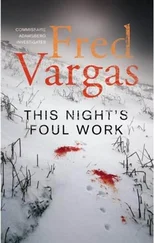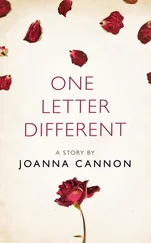When, in the ninth grade, The Diary of Anne Frank was chosen as the school play, Debra figured that she, as one of only a handful of Jews in her class, would be a shoo-in for the lead. Hadn’t she read the book twice, and cried each time? Wasn’t she prohibited to go out on Friday nights because of her mother’s mandatory attendance policy at family Shabbat dinners? It seemed only natural that she should be the one called upon to channel the spirit of her beloved Anne; a deserved right, a sort of reparation, if you will, that the drama teacher at Taft Junior High was beholden to perform. When the role went to Cindy Torricelli, an Italian girl with dark, sunken eyes and virtually no forehead, Debra had been devastated. Cindy Torricelli, for God’s sake, who wore a chintzy gold cross around her neck that she refused to take off even during the performances, when she insisted on tucking it into her shirt instead. This was an insult to the entire Jewish people, who had already suffered so much.
“You look nothing like Anne,” the drama teacher had said gently as Debra sobbed in his office for all the injustice in the world the day the cast list went up.
“But! I’m! Jewish! She could have been me !” First a brilliant and beautiful young girl killed by Nazis, now this. It was more than Debra could bear. She had been cast as the understudy for Miep.
The woman in the muumuu seems to be waiting for Debra to either muster up some Portuguese or go away.
“Services?” Debra says, waiting for that moment when it becomes clear to the woman that she should envelop Debra in some sort of embrace. “Shabbat?” She fingers the phrase book but knows that nothing in it will be of any help. It is broken down into five sections: Conversation, Food, Transportation, Hospitality, Emergencies. There are things she wants to communicate that are not included in these basics. Were there a Religion-Seeking section, perhaps things would be easier. “I have come for Shabbat services,” Debra would say. “I am a Jew.” And then, ritually, defensively, to explain her visage: “My mother converted.” Then she would flip over to the Food section: “What’s for dinner?”
The woman crosses her arms over her chest. They face off in monolingual obtuseness.
Okay, Debra thinks. It is Friday night; there must be Shabbat services. There are certain immutable rules involved with religion. Just because she is in a borderline second-world country (bastard child of Europe) — a place where she had, the day before, for complete lack of alternative cuisine, been forced to eat tripe, for fuck’s sake — does not mean that she should feel stupid for having shown up, unannounced, at Lisbon’s only synagogue, sans a way back, at dusk on Shabbat. A Jew could do that, find a home anywhere in the world with other Jews. Wasn’t that the point of the entire freakin’ deal? Covenant, whatever? There’d been a song at camp one summer, when Debra was old enough for irony but not too old to sing songs: “Wherever you go, there’s always someone Jewish/you’re never alone when you say you’re a Jew/so when you’re not home and you’re somewhere kind of newish/the odds are, don’t look far, ’cause they’re Jewish, too!”
“Services? La servisa? Unas servesas ?” Oh, this is pathetic. Debra has taken rudimentary Spanish and knows that cerveza is the word for beer.
The woman wags an index finger in Debra’s face. “No,” she grunts, clipped and guttural. She turns and walks back into the synagogue.
Debra had envisioned ecstatic hora dancing, tears of welcoming and joy, universal language, belonging. Oh, they’d say, a fellow Jew, here to observe the Sabbath with us; we are but one family tree, with branches spread over the world! She’d envisioned laughing in the face of genocide, expulsion, Cindy Torricelli. She’d envisioned Shabbat shalom, simple language she could share without embarrassment or desperate phrase book searching. Anything to counterbalance the past three weeks of backpacking alone: a latter-day version, with a state-of-the-art backpack, of the Wandering Jew.
Debra sits down on the sidewalk, places her flip-flopped feet in an ever-shrinking patch of sunlight to warm them, and waits.
She was supposed to have stayed in Spain for a few days before going on to France, but she’d left after a single miserable night at the Marbella youth hostel. “Nice to meet you,” she’d said to a pair of tall German girls in her dorm room, thinking, “What were your grandparents doing during the war?” The hostel contingent congregated at Joe’s Garage, a bar owned by an American ex-pat, where only English was spoken and backpackers imbibed to the thumping bass of the Violent Femmes and U2. This was not what Debra had come for. She wanted windswept beaches, charming towns bordered by overgrown fields, singular cafés in which she could write passionately about self-sufficiency in her journal and strike up conversations with ruggedly handsome, multilingual local tradesmen. She wandered the streets in disgust. Sunburned British families enraptured by Andeans in matching woven ponchos playing ABBA songs on panpipes, Spanish runaways at folding tables hawking temporary tattoos, the yellow-and-red glow of a gigantic McDonald’s casting everyone in a nightmarish light. Debra had felt claustrophobic and totally, invertedly foreign. She’d conducted a brief, informal poll of some of her fellow hostelers the next morning and found that not one of them had included Portugal on their itineraries.
The woman reappears through the gate with a small, bespectacled man in tow. She speaks to him in rapid-fire Portuguese, gesturing toward Debra.
“Hello,” the man says to Debra, holding out a flaccid, dry hand. “I’m Sergio. Can I help you?” His English is perfect; he’s been educated. A person of the book.
“We’re the people of the book,” Debra’s mother often says, embracing her chosen religion like a dyed-in-the-wool zealot. “We Jews, we study wherever in the world we are, we know that learning is a priority, we understand the importance of knowledge. ” Debra never has the heart to interrupt and clarify that the “book” to which that colloquialism refers is actually the Bible, not Every Book Ever Written. Her mother was such a smug convert, such an emphatic user of the first person plural. “ We are the chosen people.” Chosen, chosen, chosen. Her mother had chosen to be chosen, and so theirs was a revival house; a twenty-four-hour religious pep rally designed to legitimize them both. Because Judaism, like baldness, is matrilineal.
Debra smiles at Sergio, pumps his limp hand. “I was hoping to come to Shabbat services,” she says. She is paranoid and assumes there is a problem, if not with her shiksa face, then with her shoes (Americans! Coming to shul in sandals! The nerve!). It was a toss-up between the hiking boots and the flip-flops; she’d had to make a choice. She’d jokingly, inappropriately pretended, sitting on her thin, musty mattress at the pensão, that she was an alternate version of Styron’s Sophie: Choose one pair of shoes! Choose, or you lose them both! In a mock panic, acting out the Oscar clip, she’d gone with the flip-flops.
Sergio smiles as if he feels very, very sorry for her and blinks his bulging wet marble eyes. Debra instinctively braces herself for it: My, you certainly don’t look Jewish.
“I’m afraid that the synagogue is closed. We are open as a museum Monday to Friday, from ten a.m. to six p.m.”
She’d been lying in her postcards (“an amazing museum, full of painted tiles called azulejos !), embarrassed to admit that she had not been inside one museum in two weeks of travel ( so not WALGWD!), preferring instead to while away the hours shopping at markets or at cafés, reading.
Читать дальше












